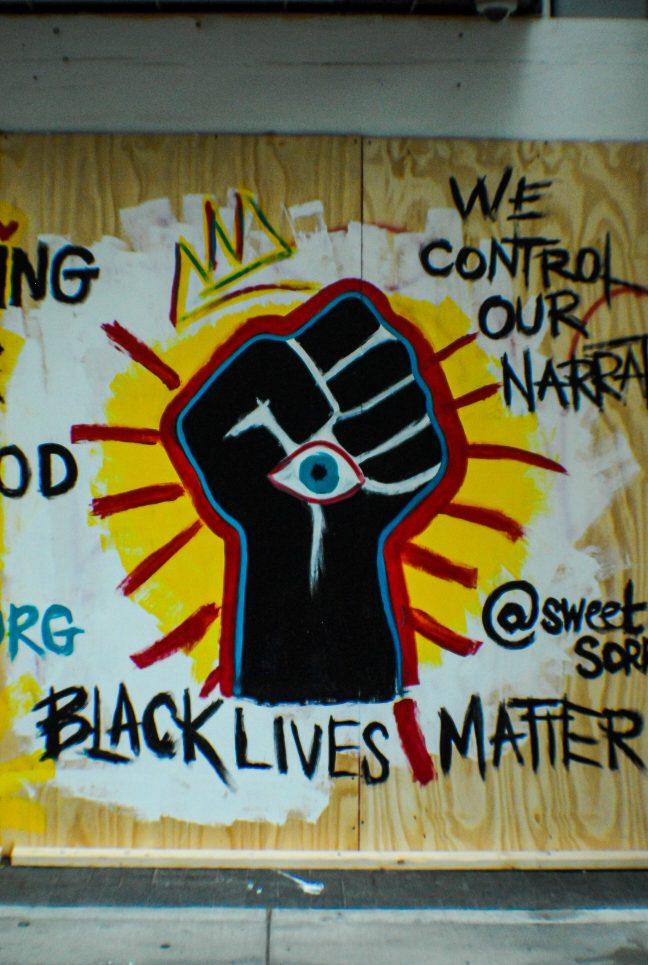Amid the pandemic, police brutality towards unarmed Black citizens George Floyd, Jacob Blake and Daniel Prude has attracted attention in America, and as such should be addressed.
Minneapolis police officer Derek Chauvin killed Geroge Floyd in May, Kenosha police officer Rusten Sheskey shot Jacob Blake seven times in the back in August, leaving him paralyzed, and Daniel Prude died in police custody after Rochester police assaulted him in March.
These are just a few stories among many that are reported — these snapshots depict a much bigger problem that has been around for centuries, for Black Americans and other racial minorities. Police brutality is a reflection of systematic racism but no police department has publicly and explicitly acknowledged that.
It is common sense that the first step in solving any problem is to recognize there is one. At this moment, police departments and politicians need to address that systematic racism is the cause for police brutality, and police brutality is still around because the consequence of that is not enough.
Police officers often refuse to hold their colleagues accountable. In the case of Daniel Prude, the police remained silent and insisted Prude died of a drug overdose, despite the Monroe County medical examiner confirming that Prude died due to asphyxiation induced by physical restraint.
The Badger Herald Editorial Board: On elevating Black stories through ethical journalism
In these cases of police brutality attracting so much social attention, all of the people were unarmed and the police officers played judge, jury and executioner, directly violating multiple amendments in the Bill of Rights.
Moreover, in released footages of those arrests, no police officer stated Miranda Rights before questioning the accused, making the nature of their questioning illegal. By nature, police brutality is illegal and infringes on the rights of citizens. The question everyone should be asking is — why are we, as U.S. citizens together, allowing those who are in uniforms to abuse their power murdering unarmed citizens?
With a broken criminal justice system, police reform is the first step in the right direction toward social justice. Amid nation-wide protests, prior to Prude’s death, the House of Representatives passed a wide-ranging Democratic police reform bill, Colorado Gov. Jared Polis signed a broad police reform bill for his state and after Prude’s death, Rochester Mayor Lovely Warren promised to reform the police and pledged to improve the city’s and the police’s response when handling mental health issues.
Another incident in Virginia motivated the state Senate to pass a police reform bill that bans the use of chokeholds, restrains no-knock search warrants and expands decertification criteria for law officials who engage in misconduct. Many other states are making efforts to reduce police brutality, but unfortunately, Wisconsin is not one of them.
Ending prison gerrymandering is first step, but we must also give voices to incarcerated
Following the Kenosha shooting, Gov. Tony Evers called a special session in the Wisconsin Legislature to pass a package of bills on policing reform, which only lasted 30 seconds before the package was blocked by Republicans.
“It’s disappointing that there’s no sense of urgency from Republicans, and it’s a let down to all the people who are asking us to lead,” Evers said, according to the Associated Press.
It is also clear that Republicans have no intention to make changes that actually matter to peoples’ lives. At this point, refraining from action on police reform is the same as permitting officers to continue police brutality.
When the government is reluctant to make changes, it is up to the people to do so. In fact, Wisconsinites in Madison have already taken action. The Madison City Council recently approved a Community Oversight Board for the police. The Board is a great civilian effort to put a check on the police.
According to Mayor Satya Rhodes-Conway, the city established the Board to “result in the transparency of community demands, as well as contribute to greater community confidence and trust in our police department.”
The Board should first create a series of criteria to define police misconduct. Then, the Board and the City Council should work together to create a database for officers whose licenses have been decertified and use the database to keep track of it. This is a first step to create a more comprehensive measure to prevent decertified police officers from being trained and enlisted in the force again.
Milwaukee COVID-19 deaths disproportionately affect black communities
Wisconsin residents should not only continue to push for transparency and strict measures, but also demand better representation of racial minorities within the Madison Police Department.
According to released MPD demographic information, the large majority of the MPD is white. By having more minorities in the force, it will passively help police officers interrupt their racial biases, reducing the effect of systematic racism.
Moreover, each police officer should be required to complete extensive training in diversity, equity and inclusion to help them further understand and recognize existing racial issues within the current criminal justice system.
Lastly, Wisconsin residents have the right to press charges against police officers who commit misconduct and should demand the Wisconsin State Supreme Court end immunity for police officers when facing charges of police brutality. Police officers often either face minimal to no criminal prosecution, even if they violated the Bill of Rights. Effective lawsuits and criminal charges might make officers think twice before they engage in misconduct.
Government proposals on police reform are great initiatives. With the Madison Community Oversight Board, it truly demonstrates a collaborative effort of the local government and citizens to recognize the problem of police brutality and to reform the police force. This is a quintessential and correct first step toward social justice.
Ken Wang ([email protected]) is a sophomore majoring in political science.





















